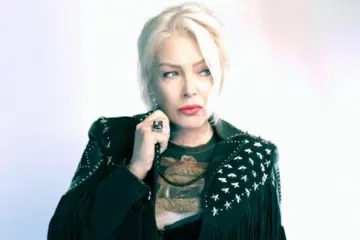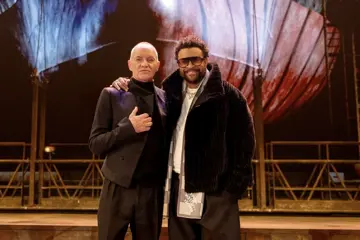Sydney nightlife wasn't built with queer people in mind, and the queer pockets of the city - historically gay pubs and clubs - seem to keep closing down. Every month there are fewer spaces to call home than there were before. Every month alternative cultures are pushed out or stamped down.
Kings Cross still, even if only symbolically, represents the heart and soul of Sydney's queer community, with its Oxford Street stretch of gay bars and queer-owned-and-run businesses. But between over-policed early lockouts and creeping gentrification, a new silence is settling over the suburb. Gigs are cancelled on the strength of noise complaints, and it's getting harder to figure out where to hear new, live music in Sydney.
But it's the space in between bodies in queer venues where the silence feels not only more profound, but more tangible. You can almost see the sense memories of vibrant ghosts around you when you dance, just enough space between you and the group next to you to feel self-conscious and exposed.
In July this year, gay club Midnight Shift, which has held its place on Oxford Street for 35 years, shut its main doors. Its tiny upstairs bar will open on weekends, but the expansive downstairs, for dancing and drag shows, will stay closed. Other venues on the strip are less gay-focused, and the spaces left are overcrowded and increasingly tailored to the needs of a gay male clientele.
Don't miss a beat with our FREE daily newsletter
The result is a creeping disillusionment. It was already difficult, as a queer woman, to find a space for queer socialisation and celebration in the city's most famous gaybourhoods, the inner west's cafes and sleepy pubs aside. Everywhere else, it can be hard to cut through all the men.
Sexism is as alive and well in the queer community, where gay men still earn more money than women and are more likely to own and run businesses that will default to gay male tastes; the decline of lesbian-owned and lesbian-centric businesses is a global, and depressing, trend.
Most spaces in Sydney that are ostensibly open to all individuals in the queer umbrella or QUILTBAG - choose your cutesy collective term - are still dominated by men; when women, non-binary or trans revellers are made to feel unwelcome, they won't return. And not feeling welcome happens a lot.
It's not uncommon for women or transfolk to be groped or sexually harassed by the queer men in those spaces; in my personal experience, it happens almost every time I'm in a gay club, and an excellent night isn't if I meet a woman I like or the DJ plays Starz on 54's cover of If You Could Read My Mind, it's one where my breasts weren't grabbed without my consent. I don't have all that many excellent nights in those venues.

Finding spaces free from male entitlement, but that are still inclusive - a must when you have friends that are all across the queer spectrum, especially for trans or non-binary queers - is rare. When we find a space, we want to hold onto it and protect it.
Lately, there have been two beacons of hope.
Kat Dopper's Heaps Gay events - roaming parties with a seriously warm vibe and a diverse following - are structured to beat the lockout laws and negative club behaviours by creating inclusive, fun nightlife for all kinds of queer people. The music is fun, the entertainment is camp, and the diversity in age, body size, and personal style is enough to make you giddy and/or weepy about the word 'community'.
You could be dancing in a carpark in Marrickville or taking over a pub in Leichhardt. You could be on top of Sydney Tower. Maybe there are bubbles bobbing by your face, and you might never see who's blowing them your way. You could end up, somehow, covered in glitter. Everyone seems comfortable; everyone dances like they're floating, everyone hits that high note in the Whitney song.
There's a liberation in being in a space that's unabashedly queer. Your defences drop; you feel safe. You feel that sense of belonging brewing somewhere in the beat, in the neon lights, and the grin from a stranger. It's hard to feel systematically oppressed when you're in a room full of people a little like you, moving to the same rhythm. It can do wonders for your self-esteem - and it has for mine.
These events only happen periodically, but Heaps Gay has a quieter, calmer secret life: there's a standing Heaps Gay date at Erksineville's Imperial Hotel called Flamingos. And it might just blow open your social life.
The Imperial is iconic and historically gay: it famously features in the opening scene of Priscilla, Queen Of The Desert. What a place to go to feel connected to your queer family. What a place to feel part of a shared heritage. It's come through troubled times with a clear heart, and Flamingos has stepped in to offer a Friday night alternative to the current Oxford Street blues.
For a milder vibe with a strict theme (they call it "unpretentious pop"), you can expect songs a healthy dose of '70s, '80s and '90s jams - in the earlier hours expect Billie Piper and one hit wonders; later on, crowd-pleasers from Rihanna and your favourite divas reign.
There's a sense of security in the history of the Imperial - leaning on its queer roots for moral support - and the familiar faces in the crowd. The dancefloor is never so packed you can't move, like at Oxford Street's beloved and daggy Palms, the bar staff are genuinely friendly, and the space is equally welcoming to everyone, across the spectrum of gender and identity.
This space feels imperative to building a life and a community; to giving shape, form and place to my own queer family and identity. Heaps Gay is transient and adaptable and resourceful, but it's nice to put those traits away for a moment and go to a building that has tried for a long time to offer an alternative home beneath rainbow flags, and dance, and talk, and laugh, and then come back the next Friday night and do it all again.
The past few times I've visited Flamingos, though, something has been different. The dancefloor is emptier than usual. The music is different - less precisely camp - and the front and back rooms are dotted with straight couples: on couches, playing pool, in the middle of the dancefloor. Taking up space and taking over. If Flamingos too has been eroded into something less queer and more blandly palatable - if this continues - that's a crushing blow for me, my friends, and the community.
We can't always dance on the outskirts in carparks. We can't always be guerrillas. We long for a home.















